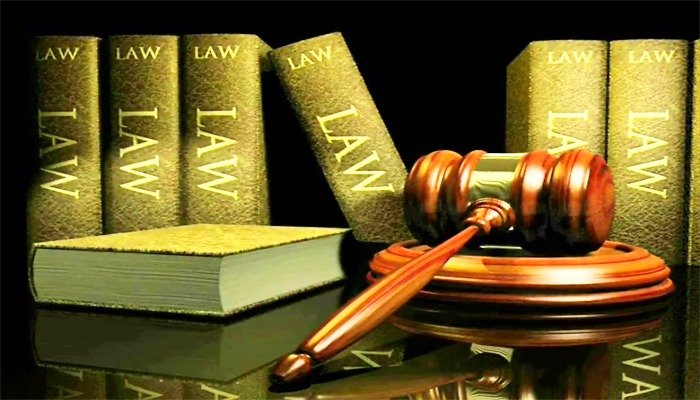This post has been written by Diksha Dubey a second year student from Amity Law School, Amity University, Chattisgarh.
When we talk about our legal system first we should know what is Rule of Law?
The concept of Rule of law is that the state is governed not by the ruler or the nominated representative of the people but by the law. The constitution of India intended for to be a country governed by the rule of law. It provides that the constitution shall be the supreme power in the land and the legislative and the executive derive their authority from the constitution.
Now, in the most famous case- The encounter killing of the most wanted gangster Vikas Dubey the sordid saga has all the signs of the slow demise of the law and order in our country. Vikas Dubey arrested in the mahakaleshwar temple of Ujjain days after his crime to escape an encounter , But Uttar Pradesh police executed the encounter quickly. And the U.P government and police consider these figures a glowing achievement.
When extrajudicial killings are encouraged by politicians in power ,celebrated in popular culture and enabled by the general public, it cannot really come as a surprise that the police conduct these operations with complete impunity ,utter disregard for due process of law, even a visible lack of effort in trying to cover their tracks. This emboldement becomes a slope that allows the police to take matters into their own hands more and more often implicating and executing innocent people and deciding for themselves who deserves what kind of punishment. And politicians also use police to fulfill their own agendas. Now, when the police themselves break the law, who will hold them to account? This is the big question that should be raised in the court of law. Because only law holds the position to deliver justice to each and every citizen of our country. Although, Vikas Dubey has committed many heinous crimes but to decide the punishment there is rule of law not the police or any other person should decide on behalf of this for him or for any other gangster like him. This is against the rule of law. And by all these things by not taking our law seriously our legal system is sloping downward in a negative manner.
The encounter of Vikas Dubey who had gunned down eight policemen is seen by many as even more brazen. As a hardened criminal, Dubey needed to be put to trial to find out who his patrons in the system were. After all he had been thriving as a gangster despite murdering U.P minister Santosh Shukla in the broad daylight in a police station.
There are signs that state authorities are no longer appealing to people on the basis of a claim to institutional and procedural fairness, something that marked the modern state as different from others over a century.
Legitimacy is now increasingly being sought from people on the basis of state functionaries perceived ability to undermine institutions, which are being seen as impediments to justice. In the lokpal debate also the hazare camp had repeatedly claimed that the police subvert the process of law by deliberately filing a weak chargesheet in high profile cases so that the courts reject it. The claim was that law was being undermined even while maintaining a facade of it. The U.P government looks somewhat determined to disregard the first principles of the criminal justice system. Police encounters have become routine in U.P. U.P is fast becoming known for its police encounters, with Mr. Adityanath himself telling the U.P legislative council in mid-february about rare feat achieved by police in killing 40 criminals in as many as 1200 encounters since government formation. He is also reported to have said that “bandook ka jawab bandook se diya jayega ( the gun will be answered with a gun)” what kind of government is this? Here the criminal can’t be called evil whereas the government should be said to be evil. The fundamental premise of the rule of law is that every human being including the worst criminal like Vikas Dubey is entitled to basic human rights and due process. Encounter killings generally take place with the prior consent or in full knowledge of the top authority. But yet fake encounters take place, the main culprit easily get discharged or is shot dead. From the details of U.P encounter they do not look like acts of defence by the U.P police. These encounters demonstrate the government’s resolve to adopt the “ rule by gun” in preference to the “rule of law”.
The primordial value is that it is the responsibility of every organ of the state to function within the four corners of constitutional responsibility. That is the ultimate “rule of law” said by the supreme court of India. The indian penal code, the criminal procedure code or the state police acts do not define “encounter”. However, this word “encounter” has come to used in the police lingo as a sudden confrontation between anti-national and criminal elements and security forces of a nation and is commonly referred to an incident which culminates into the death of such anti-national and criminal elements. The police force in Uttar Pradesh is an organized gang of criminals. There is yet time for the government to shut down the trap it is setting for itself by empowering the police to kill at will.
Conclusion
The founding fathers of India accomplished what the rest of the world though impossible establish a country that would follow the letter of the law and implement the rule of law. In all matters such as the protection of the rights of the people, equal treatment before the law, protection against excessive arbitrariness, the constitution of India has provided enough mechanisms to ensure that the rule of law is followed by each.
Also, read https://lawlex.org/lex-pedia/custodial-death-a-curse-to-humanity/24271


